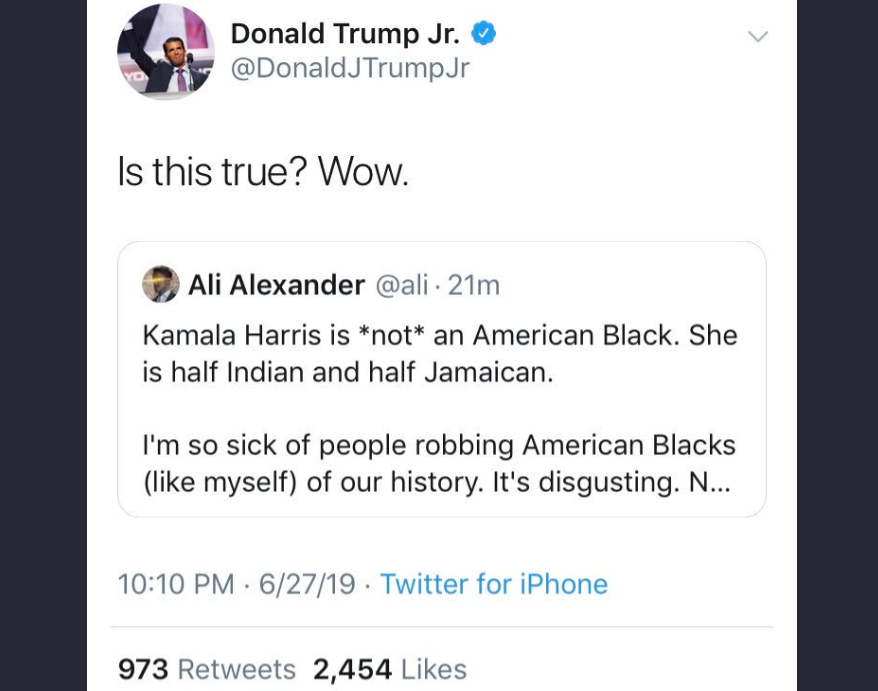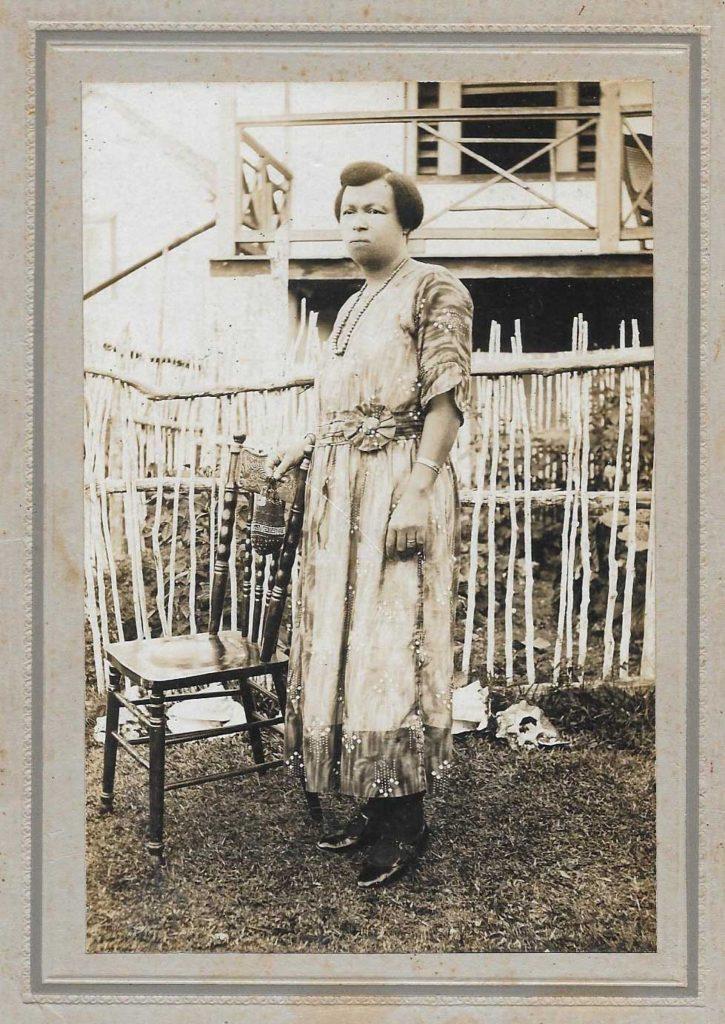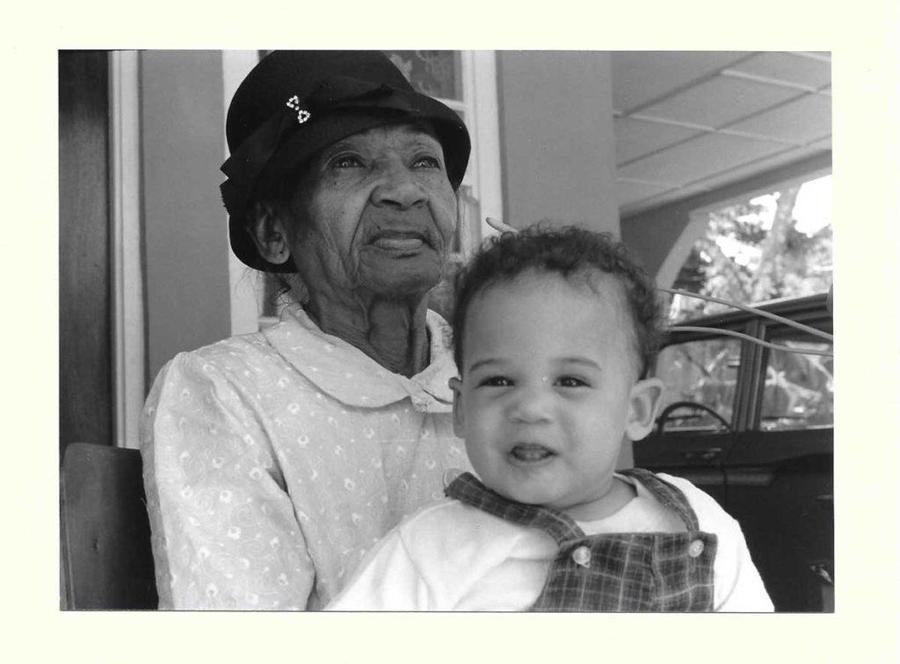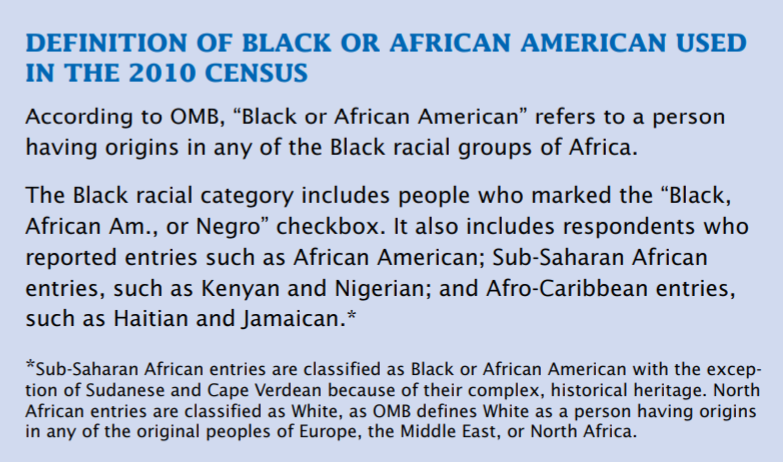STORY UPDATED: check for updates below.

Is Kamala Harris not an American Black considering that her parents are Indian and Jamaican and was she lying when she said she was part of the second class to be integrated at her elementary school? No, neither is true: While racial definitions in the United States are controversial, the federal government's definition of "Black or African American" includes persons "having origins in any of the Black racial groups of Africa... and Afro-Caribbean entries, such as Haitian and Jamaican," according to the U.S. Census Bureau. The California senator falls into the legal definition of "American Black," despite attacks from political opponents who accuse the Democratic presidential contender of stealing the heritage of families with longer histories in the country. Also, the Berkeley school district confirmed her elementary school was segregated until a year before Harris started kindergarten, contrary to claims it was integrated six years earlier.
Questions of Sen. Harris's racial identity have followed her throughout her political career, but they grew louder in the wake of her strong performance in her first presidential debate appearance in which chided former Vice President Joe Biden's record on forced school busing in the 1970s. President Trump's eldest son retweeted a tweet (archived here) posted on June 27, 2019 that read:
Kamala Harris is *not* an American Black. She is half Indian and half Jamaican.
I'm so sick of people robbing American Blacks (like myself) of our history. It's disgusting. Now using it for debate time at #DemDebate2?
These are my people not her people.
Freaking disgusting.
This is what social media users saw:
Kamala Harris is *not* an American Black. She is half Indian and half Jamaican.
-- Ali Alexander (@ali) June 28, 2019
I'm so sick of people robbing American Blacks (like myself) of our history. It's disgusting. Now using it for debate time at #DemDebate2?
These are my people not her people.
Freaking disgusting.
Donald J. Trump Jr., the oldest of President Trump's children, retweeted it with the added message "Is this true? Wow." This helped propel Ali Alexander's tweet into viral status and also assured major media attention to the controversy. Trump Jr. deleted his retweet, but here is a screenshot:
Alexander, who the New York Times described as "a right-wing personality," defined himself as "half-Arab, half-American Black" in a follow-up video titled "MY TWEET WENT VIRAL: Explaining why Kamala Harris is not American Black."
MY TWEET WENT VIRAL: Explaining why Kamala Harris is not "American Black" ✊🏾 https://t.co/aq681iJqll
-- Ali Alexander (@ali) June 28, 2019
My roots go back, within my lifetime, to my paternal grandmother Miss Chrishy (née Christiana Brown, descendant of Hamilton Brown who is on record as plantation and slave owner and founder of Brown's Town) and to my maternal grandmother Miss Iris (née Iris Finegan, farmer and educator, from Aenon Town and Inverness, ancestry unknown to me). The Harris name comes from my paternal grandfather Joseph Alexander Harris, land-owner and agricultural 'produce' exporter (mostly pimento or all-spice), who died in 1939 one year after I was born and is buried in the church yard of the magnificent Anglican Church which Hamilton Brown built in Brown's Town (and where, as a child, I learned the catechism, was baptized and confirmed, and served as an acolyte).
A whopping 35 percent of all African-American men descend from a white male ancestor who fathered a mulatto child sometime in the slavery era, most probably from rape or coerced sexuality. In other words, if we tested the DNA of all of the black men in the NBA, for instance, just over one-third descend from a white second or third great-grandfather.
Having a white slave owner as a great-great-great-great-great grandfather does not rule Kamala Harris out as being African American. Instead, it gives her commonality with a large percentage of African Americans.
Harris responded to critics in a radio interview in February, 2019:
I think they don't understand who black people are, because if you do, if you walked on Hampton's campus, or Howard's campus, or Morehouse or Spelman or Fisk, you would have a much better appreciation for the diaspora, for the diversity, for the beauty in the diversity of who we are as black people... I am black and I am proud of it. I was born black and I'll die black and I am proud of it. And I am not gonna make any excuses for it, for anybody, because they don't understand.
"Black or African American" refers to a person having origins in any of the Black racial groups of Africa.
The Black racial category includes people who marked the "Black, African Am., or Negro" checkbox. It also includes respondents who reported entries such as African American; Sub-Saharan African entries, such as Kenyan and Nigerian; and Afro-Caribbean entries, such as Haitian and Jamaican.
Thousand Oaks Elementary, along with all Berkeley public elementary schools, were integrated through a two-way busing plan, beginning in 1968, so Senator Harris is correct in describing her experience in 1969 as the second year of the busing integration program.
Sen. Harris shared a photo of her as a young child with her mother and sister on Instagram in February 2020:
They post was accompanied with this message:
My mother was very intentional about raising my sister, Maya, and me as strong, Black women. She coupled her teachings of civic duty and fearlessness with actions, which included taking us on Thursday nights to Rainbow Sign, a Black cultural center near our home. There we were always greeted with warm hugs and exposed to extraordinary people like Shirley Chisholm, Nina Simone, and Maya Angelou who helped show us what we could become. This #BlackHistoryMonth, I want to lift up my mother and the community at Rainbow Sign who taught us anything was possible, unburdened by what has been.
Other false claims about Kamala Harris that Lead Stories has debunk include:
Fact Check: Kamala Harris' Birth Certificate Does NOT Identify Her As 'Caucasian'
Fact Check: Senator Kamala Harris IS A United States Citizen And IS Eligible To Be President
Fact Check: Kamala Harris Did NOT Say She Listened To Snoop And Tupac In College
Fact Check: Kamala Harris Did NOT Call Joe Biden 'A Racist And A Rapist'
Updates:
-
2020-08-16T19:13:11Z 2020-08-16T19:13:11Z adding Harris Instagram post with photo of her with sister and mother. -
2019-07-01T22:06:43Z 2019-07-01T22:06:43Z Added details of Kamala Harris's ancestry and photos.





















